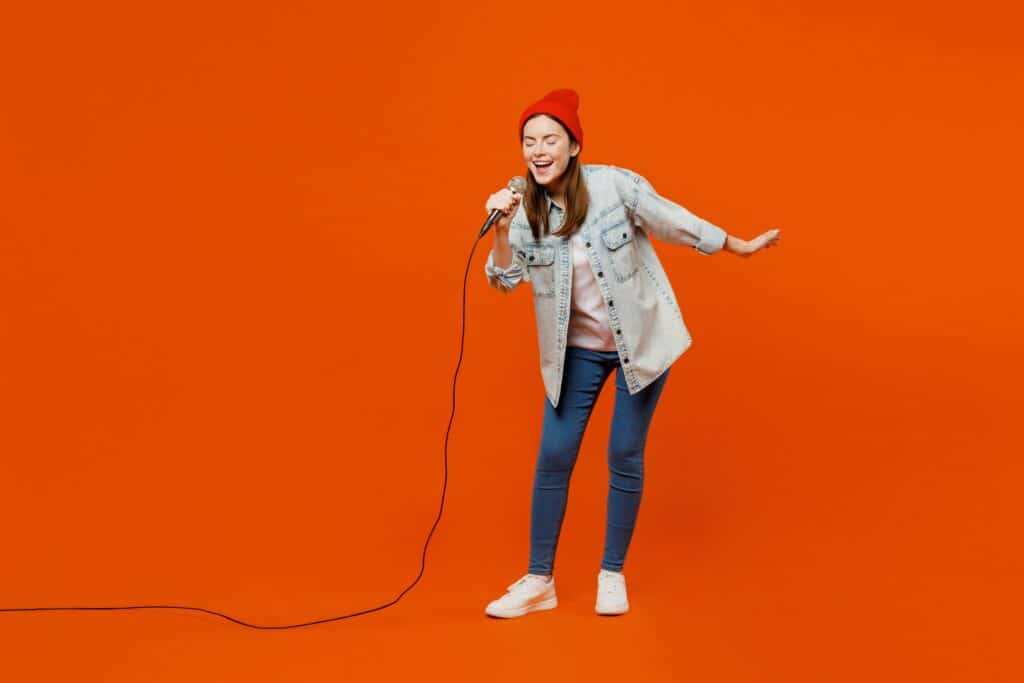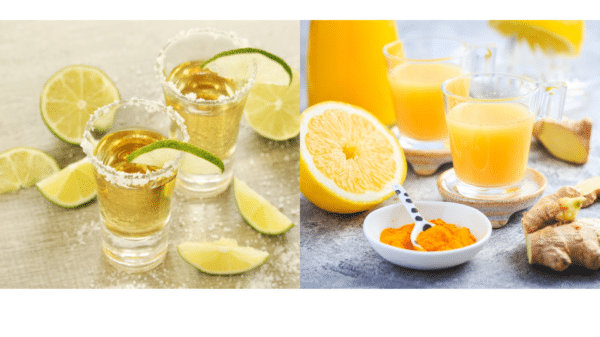Singing along to your favorite tunes or hitting a beautiful trill isn’t just fun – it’s a powerhouse for your health! Boosting endorphins, improving heart, lung, and immune function, and even rivaling the benefits of yoga are just a few of the perks that make karaoke so great.
In 2014, scientists first touched on the field of energy expenditure in professional classical opera singers, eager to assess how many calories an opera singer burns during a performance.
The research found that professional classical opera singers burned an average of 28.5 calories while performing an aria lasting around two minutes and fifty seconds. To put that number into perspective, that’s burning 684 calories an hour, the equivalent of running around six miles!
However, it’s vital to note that classical opera singing is one of the most strenuous forms of singing out there, and a regular karaoke session probably won’t have nearly as extreme of effects. Nevertheless, there has got to be something about singing that’s contributing to an increased energy expenditure. Belting out the lyrics to a song you love could have a world of advantages, mental, physical, and social.

Singing as a Workout?
Though it may seem like a peculiar idea at first glance, a karaoke session can be a fun, easy, and interesting addition to your workout schedule. One blogger from China posted a review of using karaoke as a workout on social media. She showcased how her three-hour long karaoke session burned an incredible total of 781 calories.
Another user on the Chinese social media platform Xiaohongshu posted about how many calories one can burn singing individual songs. For example, singing the song ‘My Heart Will Go On’ by Celine Dion supposedly burns around 13.5 calories.
So, exactly how long does one have to sing to get a decent workout out of karaoke? According to the Department of Health’s Physical Activity Guidelines for Americans, adolescents require around 60 minutes of moderate- to vigorous-intensity exercise every day.
Overall, singing is an aerobic activity that exercises major muscle groups in the upper body and strengthens the cardiovascular system. Singing is usually characterized as moderate-intensity exercise, so even adding 15-30 minutes of karaoke to your day can lead to a significant increase in energy expenditure, oxygen circulation, and alertness.

Singing Strengthens Various Organ Systems & Helps Manage Chronic Pain
The health benefits of karaoke don’t end there! In addition to burning calories, improving circulation, and strengthening the intercostal and abdominal muscles, there is growing evidence suggesting that group singing may also be beneficial for individuals living with long-term lung conditions.

Many people with lung conditions have said that singing has helped them feel less short of breath, more in control of their breathing, and better able to manage their symptoms. These benefits are akin to those experienced through yoga and meditation. Improved breathing can also help out people experiencing anxiety and/or panic attacks.
Additionally, a 2004 study that compared singing vs. listening to music found that the individuals who sang showed higher levels of an essential antibody called Immunoglobulin A, which helps fight off infections. Listening to music did decrease levels of stress hormones, but the improvements in the immune system were unique to the participants that chose to sing.
Moreover, if you’re ever in chronic pain from a medical condition, singing has the potential to alleviate symptoms for months. A study conducted with people suffering from chronic pain found that those who engaged in active singing reported better mood and lower perceived pain, even six months later.
Karaoke & Mental Health
In addition to the physical health benefits of karaoke, singing is a mindful activity that allows one to live in and focus on the present moment. Mindfulness has been proven to reduce stress and improve focus.

Singing also lowers cortisol and triggers the release of endorphins and oxytocin in the brain, contributing to lower stress and anxiety levels. Endorphins improve confidence and self-esteem. Singing, just like more traditional forms of exercise, sets off a chain reaction of positivity in the brain.
How Music Artists & Their Song Lyrics Reflect Gen Z’s Authentic Approach to Mental Health
Many current song lyrics are straightforward and open with their discussion on mental health. These deliberate choices made by musical artists are reflective of a very special aspect of Gen Z, which is the generation’s raw approach to mental health. Slowly but surely, mental health is becoming less and less stigmatized, though there is still a long way to go.
Several well-known artists, from Selena Gomez to Shawn Mendes to Ed Sheeran to Billie Eilish, have been widely regarded as being “outspoken about mental health.” Countless other artists have spoken out about their personal experiences and thoughts, whether in interviews or in their music.
For example, Billie Eilish’s music has been very transparent right from the beginning. In Eilish’s song, ‘Everything I Wanted,’ she sings, “It might’ve been a nightmare / To anyone who might care / Thought I could fly (fly) / So I stepped off the Golden, mm / Nobody cried (cried, cried, cried, cried) / Nobody even noticed.” Another example is Eilish’s track from the Barbie movie, called “What Was I Made For?”

Eilish and other artists who have poured raw emotion into their songs have connected with people experiencing similar feelings worldwide. Furthermore, studies have shown that members of Gen Z are much more likely than other generations to report mental health conditions, symbolizing authenticity that can help begin the conversation on heavy topics.
Music and other forms of art are an instrumental tool to build connections. Singing along to relatable songs can be beneficial to one’s mental health, regardless of whether or not the songs are upbeat and happy.
Why Karaoke is the Perfect Workout for Gen Z
A 2001 study found that Gen Z has different workout preferences than other generations. One of these preferences is working out in groups rather than alone, and another is working out in a convenient, comfortable setting. Karaoke can be a very social activity that can be done from nearly anywhere, checking the boxes of what Gen Z is looking for in a workout. Adding movements or choreography in while singing can make the experience even more enjoyable and rewarding.
Research has also shown that the social benefits of karaoke are numerous; group singing, no matter the quality, is an awesome icebreaker. In the midst of the loneliness epidemic among Gen Z, such activities that are easy to bond over are more important than ever.

Overall, having fun is a crucial part of exercise, since it makes you want to stick to the routine. Though singing is not nearly enough to completely replace a workout routine, it can be a valuable addition to your day and a great way to boost your physical, mental, and social health.
For more health and wellness ideas, check out 5 Ways to Improve Your Mental Health and Well-being as a Student, how Skin To Skin Contact With Your Partner Can Naturally Decrease Stress, Boost Your Immune System, And Lower Cortisol Levels, and how One ‘Lazy Day’ Per Week Can Reduce Stress and Blood Pressure.












